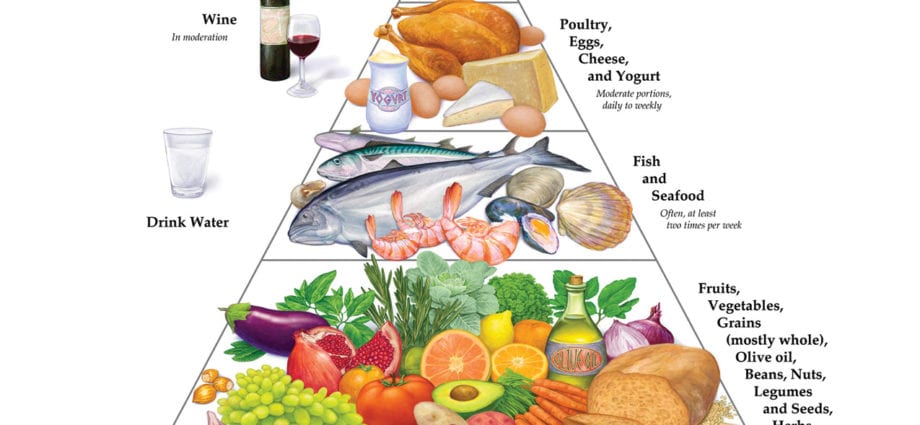The Mediterranean diet has been making headlines in medical articles in recent years. If you believe what they write, switching to this diet helps you lose weight and feel great. Unfortunately, many do not pay attention to the fact that they do not mean the modern diet of the inhabitants of Italy, Spain and Greece, but the traditional one. I also want to write about him in more detail.
So what is the Mediterranean diet and why is it good?
People who associate the Mediterranean diet with Italy and think about olive oil, cheese and wine are deeply mistaken. The famous Mediterranean diet consists mainly of plants, not wine and cheese.
After World War II, the Rockefeller Foundation assessed the social situation in Greece. They found an extremely low incidence of cardiovascular disease in the region, which impressed nutritional scientist Ansel Kees, who in 1958 began researching health and longevity in the area.
In his study titled Seven Countries Studypublished in 1970, concluded that among Greeks in Crete, there was an incredibly low incidence of heart disease. They also had the lowest rates of cancer and mortality overall of all the countries studied.
These findings sparked widespread interest in the Mediterranean diet, which has not subsided to this day. But no one really thinks about what the people in the study actually ate.
What did you eat in Crete in the 1950s and 1960s?
It was practically a vegetarian diet.
Islanders’ diet on 90% consisted of plant products, which explains why heart disease was so poorly spread among the population.
The only people on the island with a rapid rate of heart disease were the wealthy class, who ate meat every day.
What is the Mediterranean diet today?
Unfortunately, very few people follow the famous Mediterranean diet today. Even the inhabitants of this region themselves. In the past few decades, people have started to eat more meat and cheese, of course, significantly more processed foods (including those with more added sugar) and fewer plants. And yes, in the Mediterranean, the rate of heart disease has skyrocketed over the past few decades.
Research proves that any plant-based diet (that is, one where plants prevail) goes hand in hand with a reduction in the development of cardiovascular disease, cancer, obesity, diabetes, and an increase in life expectancy. If you want to stick to a true Mediterranean diet, forget about cheese and wine every day. And consider eating more fruits, vegetables, herbs, whole grains, legumes, and root vegetables more often.
My app with recipes will help you!










